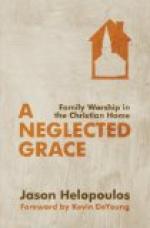Sympathy was a rich and interesting theme with the ancients. It entered into all their philosophy and religion, and gave rise to numerous fables. They believed that sympathy was a miraculous principle, and that it reigned in irrational and inanimate things. Thus they thought that “two harps being tuned alike, and one being played, the chords of the other would follow the tune with a faint, sympathetic music.” It was also believed that precious stones sympathized with certain persons, that the stars sympathized with men, that the efficacy of ointment depended upon sympathy, that “wounds could be healed at a distance by an ointment whose force depended upon sympathy, the ointment being smeared upon the weapon, not upon the wound.”
Upon this belief many erroneous, superstitious and dangerous systems of philosophy and religion were established. The natural philosophy of Baptista Porta, or Albertus Magnus, was founded upon the principle of sympathy. Plato applied this principle to marriage, and maintained that “marriage was the union of two souls that once, in their preexistent state, were one, and that sympathy urges them to union again, and sends them unconsciously seeking it over the world.” In the middle ages it was maintained that two friends could be so moved with mutual sympathy as to have, under certain conditions, a true and perfect knowledge of one another’s state, even when at a great distance apart. To the revival of this erroneous view of the law of sympathy may be ascribed the theories of Mesmerism and spiritual rappings at the present day.
Home-sympathy, viewed as a feeling and a faculty, is twofold in its nature, viz., passive and active. As passive, it is the mere sense of harmony of feeling among all the members, producing the idea and feeling of the oneness of home. It makes a unity of affection, so that the temper, hopes and interests of each member have a living echo and response in all the others. It gives to home its unitive heart, preserves its vital coherence, fuses all the hearts together, makes each a thread in the web of home-being, where each finds its true measure, is inspired with the home-feeling when all is right, and oppressed with home-sickness when separated from it.
But home-sympathy is also active. As such it is “the active power that one person has naturally of entering into the feelings of another, and being himself affected as that other is.” Each member of home has the power in his feelings of making the feelings of all the other members his own, though he may not have the causes of the feelings of the one with whom he sympathizes. Thus one friend may feel the grief of another, actually and really, though he may not suffer the loss of that friend. He can make the emotion which that loss caused, his own. We may weep with the mother who pours her floods of anguish upon the grave of her child, though we may not have sustained the same loss. The husband weeps with his wife, though he may not be able to feel the pangs which penetrate her heart. The child can enter into the feelings of the parent, and be affected to tears or to joy by them.




